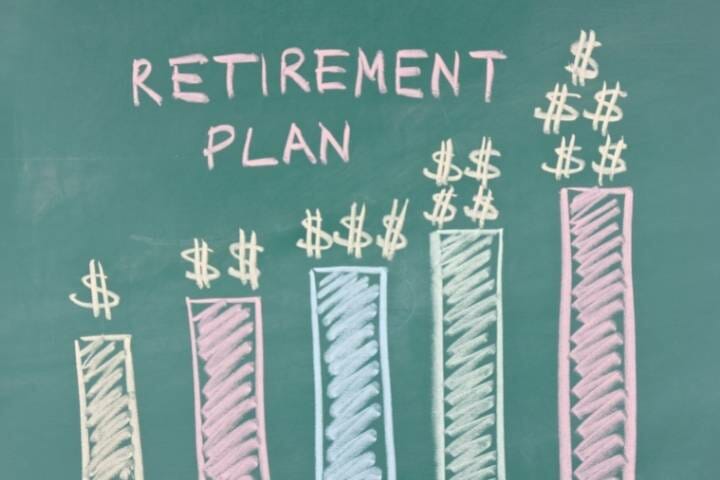When it comes to retiring, it can be very difficult to determine exactly how much money you’re going to need.

Retiring means that your working days are done – which is really nice and you can now enjoy your life with travel, visiting family and friends, and just filling your days with whatever it is you want to do.
The downside is that it means you are not going to have a regular income, so you have to make sure you have enough saved and invested to last and pay your bills during this time.
If you have a large inheritance coming – maybe from parents or other close family members – this could be enough to help prepare you for retirement and make sure you have enough to pay all your bills.
So, can you retire in a $200,000 inheritance? The short answer is yes – but you will have to be careful about it and make sure you spend cautiously.
Contents
What Do You Do With the Inheritance?
Chances are, if you’re receiving a large inheritance someone very close to you has passed away. You may be grieving their loss so you might not know exactly what to do with the money, or even be thinking about the money right now.
So, first things first. You will want to talk to a financial advisor. You should ask around to other family members and friends for recommendations on who to go to for the financial advice.
This is not only a lot of money, but it’s your retirement and money your loved one worked hard for so you don’t want it to go to waste.
If you’re hoping to stretch this money far enough to see you through your retirement years, you’ll want to invest it rather than spend it.
The options your financial planner will suggest could include
- Investing in the stock market through an online brokerage
- Move the money into some form of a high-yield savings account
- Put the money into you retirement accounts to max them out
These are not the only options for your money, and you don’t have to only pick one of them. You can mix and match to determine the best result for you and to ensure your investment gets the best return.
If you’re curious about these options, here is some more information to help you have a little knowledge going into the meeting with your financial advisor.
You might also like: Planning For Future Care And Support
Stock Market Investing
This option is the best for a long-term plan.
If you are within say 5 years of retiring, you may not be able to see the maximum results on your money. For people who have more time until they retire, this is a great option.

There is some short-term risk to investing in the stock market, which is why this is recommended as a longer-term option. Additionally, this option is one that you can do yourself via an online brokerage so that way you can pick and choose which stocks and companies you invest in – if this is something that interests you.
So, what kinds of returns does investing in stocks offer? Well, that depends on the amount you invest and the time period you’re investing over.
For example, if you are 45, you still have about 20 years until you plan to retire and you decide to put the whole $200,000 into investing in stocks, here’s what you could expect
- One year invested: $8,000
- Ten years invested: $96,049
- Twenty years invested: $238,224
These returns assume you will get a steady 4% rate of return on all your money invested. In this example, as you can see, you will more than double your money when the money is invested long-term.
What you could do, if you are closer to retirement, is put a portion of the $200,000 into the stock market and let it sit for a longer amount of time. In the interim, you could use other savings or investments you may have (that don’t get as good of a long-term return) until you need the money 10 or more years down the road.
It’s important to note that these return numbers do not account for any kind of investing management fees or trading fees you may pay. These are different from brokerage to brokerage, so it’s important to check them out before you start investing and using a brokerage account. You may also have to pay taxes on the growth, so make sure you work with your advisor to determine the best plan for your long-term goal.
A High-Yield Savings Account
If you don’t like the risk that’s involved in stock market investing, that’s completely alright. It can be really scary to put all your money in a risky environment like that, and no one knows what will happen tomorrow.

If that’s not for you, a high-yield savings account may be a valid option for at least some of your inheritance money.
The return on this kind of investment is only about 2% (as opposed to 4% in stock market investing), but it’s much more secure. This can be a great option for people who are closer to retirement and don’t want to risk as much of their money when they have less earning years less.
In the same situation, if you put the whole $200,000 into the high-yield savings account then you could expect returns similar to
- One year invested: $4,000
- Ten years invested: $43,798
- Twenty years invested: $97,189
So if you have 20 years until you plan to retire, you could add almost $100,000 to your total investment amount.
These returns don’t include any kind of banking fees that a financial institution might charge you, and inflation may cut into the total value your money.
While this option is less risky than the stock market, your money may not go as far as it would with other options.
It might make sense to put a chunk of your inheritance into this option for short-term use and let some of the money sit in longer-term investment options.
You might also like: Best Places To Retire In North America – US, Canada, Mexico
Retirement Plans
You may have the option to max out your retirement plans with this money, and therefore set you up nicely for your retirement years.
You may have a 401(k) through your employer, or you could have opened an IRA account on your own – or both – and this is your opportunity to take advantage of the amount of money you can put into these accounts.

The limits for these accounts for this year (2021) are as follows
- 401(k): $19,500
- Catch up contribution: $6,500
- IRA limit (both Roth and traditional): $6,000
- Catch up limit for IRA: $1,000
If you’re over 50 years old, you can contribute up to $33,000 a year in both a work retirement plan and your personal IRA. If you wanted to put the whole $200,000 towards this plan of investing, it would take six years of maxing out your plans before you didn’t have any money left to contribute.
How does the return compare to other types of investing? It does depend on your age, when you want to retire and the kind of investor you age (conservative vs. more risky), but generally speaking most IRA and 401(k) plans experience between 5% and 8% return.
This is very similar to the stock market investment returns as well, however in this case you don’t get to pick and choose what your money is invested in.
Depending on the kind of investing you’re comfortable with, you may experience higher or lower return rates. Additionally, the closer you are to retirement the less (generally speaking) amount of risk your portfolio will be exposed to.
So, as you get closer to retirement your rate of return may get lower but it means less of your money is at risk and you’ll have more of it secured for your retirement years.
You might also like: How To Retire With No Money
Final Thoughts
So, can you really retire on a $200,000 inheritance? This might not seem like enough money to retire on, especially if you are not even close to retiring and still have lots of working years left.
The short answer is that yes, $200,000 could be enough for someone to retire on but it really depends on how you invest the money and what your spending habits are like.
If you spend the money or don’t invest it, then you will have to look for other options for saving and investing.
However, if you look to the stock market or maxing out your retirement plans through work then this will give you a great return on your money and will give you a nice chunk of money to live off of when the time comes.
Depending on your career, you may also have some kind of pension available to you so this money would be complementary to the pension funds you’re receiving. When this happens, it will also help stretch your money further and you may be able to retire earlier.
For the best options for your money, though, you should talk to a trusted financial advisor. They will take into consideration your long-term goals, when you want to retire and the kind of lifestyle you want to live when the time comes to retire.
The best way to find a good financial planner is to talk to friends, and ask for recommendations.
